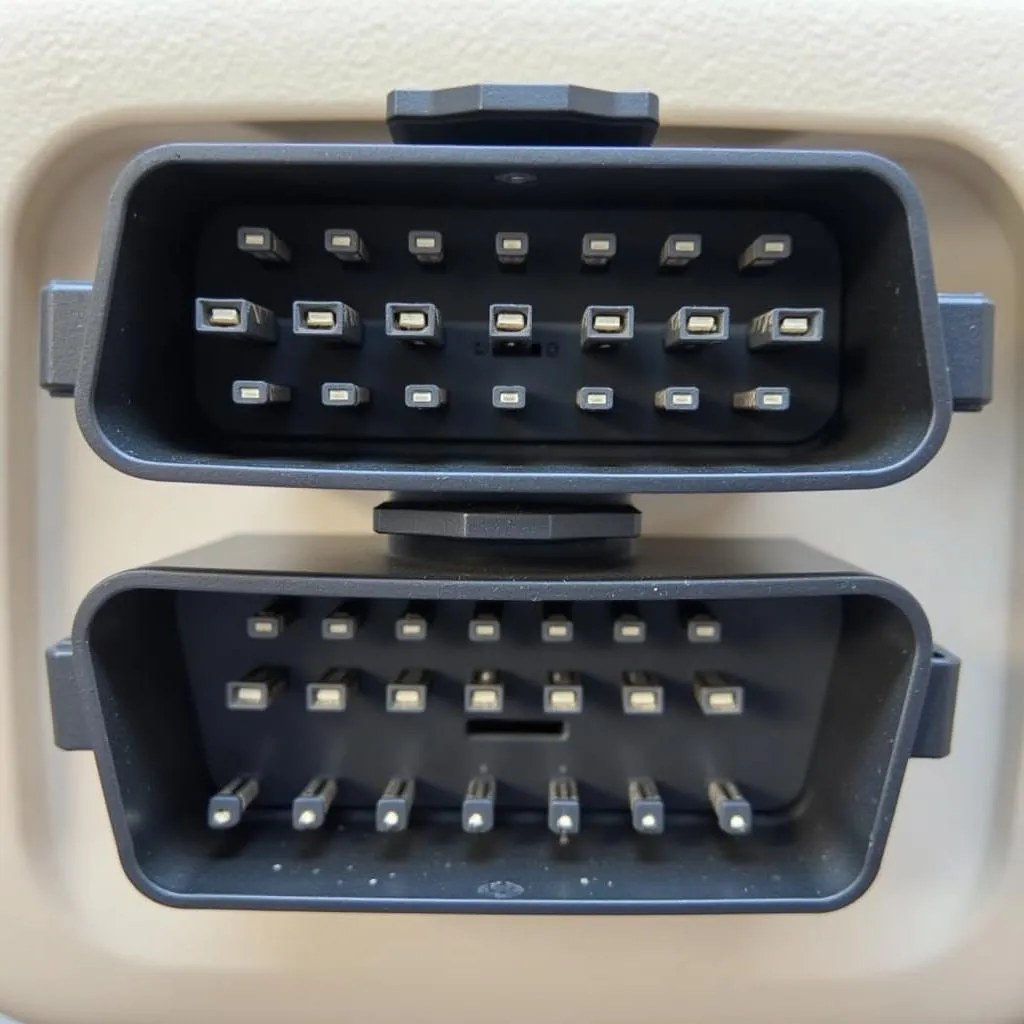The idea of dropping an older, simpler OBD1 engine into a newer OBD2 Honda might seem appealing for various reasons, but is it actually doable? This article delves into the complexities of such a swap, focusing specifically on Honda vehicles, to help you understand the challenges and considerations involved.
Understanding the Difference: OBD1 vs. OBD2
Before we dive into the feasibility of the swap, let’s clarify the key difference between OBD1 and OBD2 systems. OBD stands for On-Board Diagnostics, a standardized system that monitors your car’s emissions and performance.
- OBD1 (pre-1996): This system was relatively basic, relying on a limited number of sensors and a simpler computer system to detect engine issues.
- OBD2 (1996-present): This system is significantly more sophisticated, incorporating more sensors, stricter emission standards, and a standardized diagnostic connector.
 OBD1 vs. OBD2 connector
OBD1 vs. OBD2 connector
The Challenges of Putting an OBD1 Engine in an OBD2 Honda
While it’s technically possible to install an OBD1 engine into an OBD2 Honda, it’s far from a simple bolt-on affair. Here’s why:
- Wiring Harness Incompatibility: OBD1 and OBD2 engines use different wiring harnesses and connectors. This means you’ll likely need to perform extensive wiring modifications or even a complete custom harness.
- Sensor Discrepancies: OBD2 vehicles rely on more sensors for engine management and emissions control. Swapping to an OBD1 engine might require sensor bypasses or adaptations to function correctly.
- ECU Compatibility: The engine control unit (ECU) is the brain of your car’s engine management system. OBD1 and OBD2 ECUs are not interchangeable. You’ll need to use an OBD1 ECU, which might require additional modifications to integrate with your OBD2 car’s other systems.
- Legal Ramifications: In many regions, swapping an engine to an older emissions standard might be illegal. Ensure you check local regulations before attempting this swap.
Is it Worth the Effort?
The answer depends on your goals, budget, and technical expertise.
For most Honda owners, swapping an OBD1 engine into an OBD2 car is not practical or cost-effective. The extensive modifications required can be time-consuming, expensive, and might not yield the desired results.
Alternatives to Consider:
- Source a Compatible OBD2 Engine: Finding a used or remanufactured OBD2 engine that directly fits your Honda model will save you significant time, effort, and potentially money.
- Engine Rebuild or Repair: Instead of swapping the entire engine, consider rebuilding or repairing your existing OBD2 engine. This option might be more financially viable and ensure compatibility with your car’s systems.
Expert Insight
[Expert Name, Certified Automotive Technician]: “While the allure of a simpler OBD1 engine is understandable, the complexities of integrating it into an OBD2 Honda shouldn’t be underestimated. It’s a labor-intensive process that often outweighs the benefits for most car owners.”
Conclusion
Attempting to put an OBD1 engine in an OBD2 Honda is a significant undertaking that requires extensive knowledge, skills, and resources. While it might seem tempting, exploring alternative solutions like finding a compatible OBD2 engine or rebuilding your existing engine is often a more practical and cost-effective approach.
Before you embark on any engine swap, consult with experienced mechanics specializing in Honda vehicles to discuss your options and ensure you comply with all legal and safety regulations.
Need expert advice on OBD2 scanners or have questions about car diagnostics? Contact us on WhatsApp: +1(641)206-8880 or Email: [email protected]. Our 24/7 customer support team is here to help!
